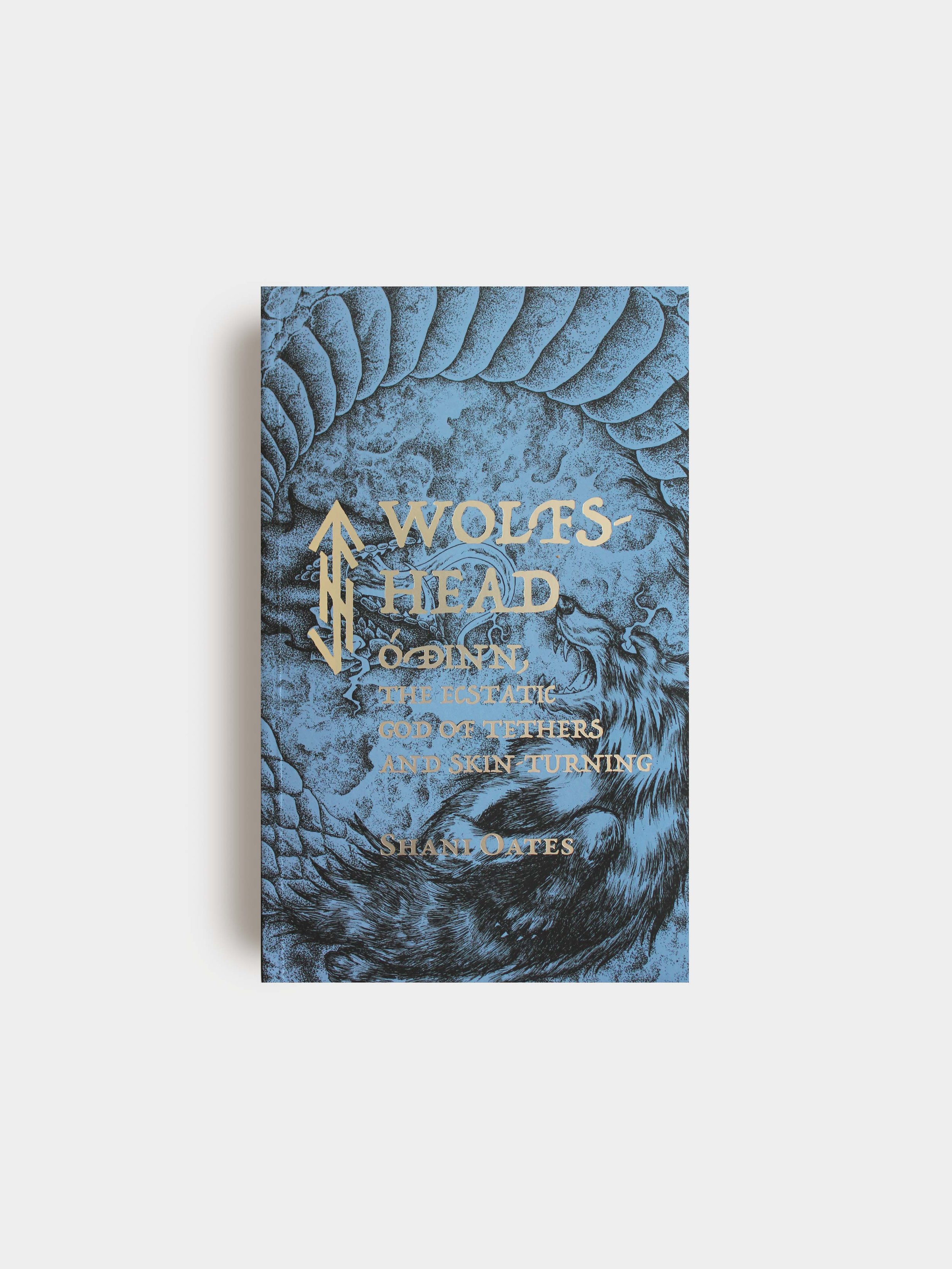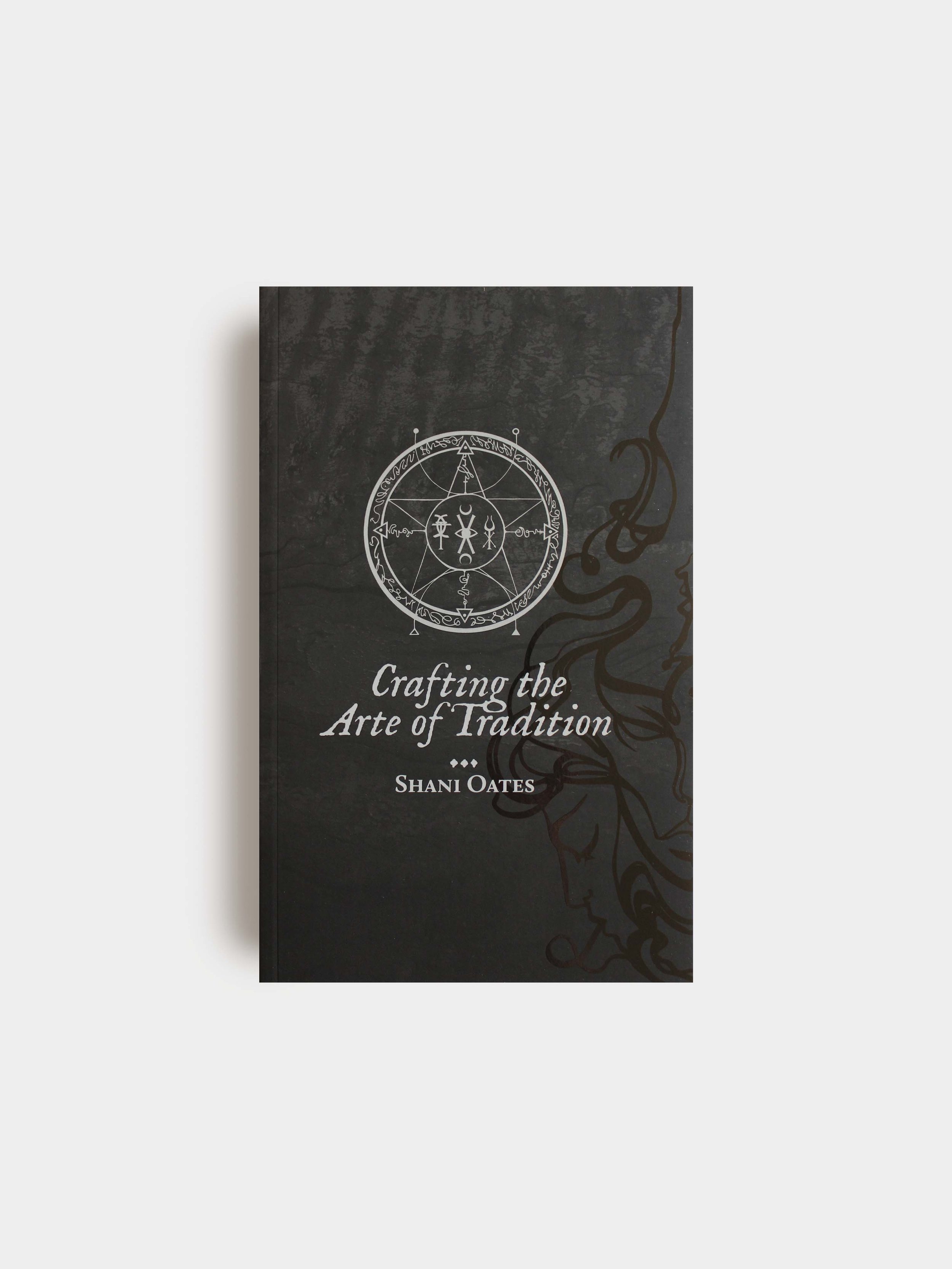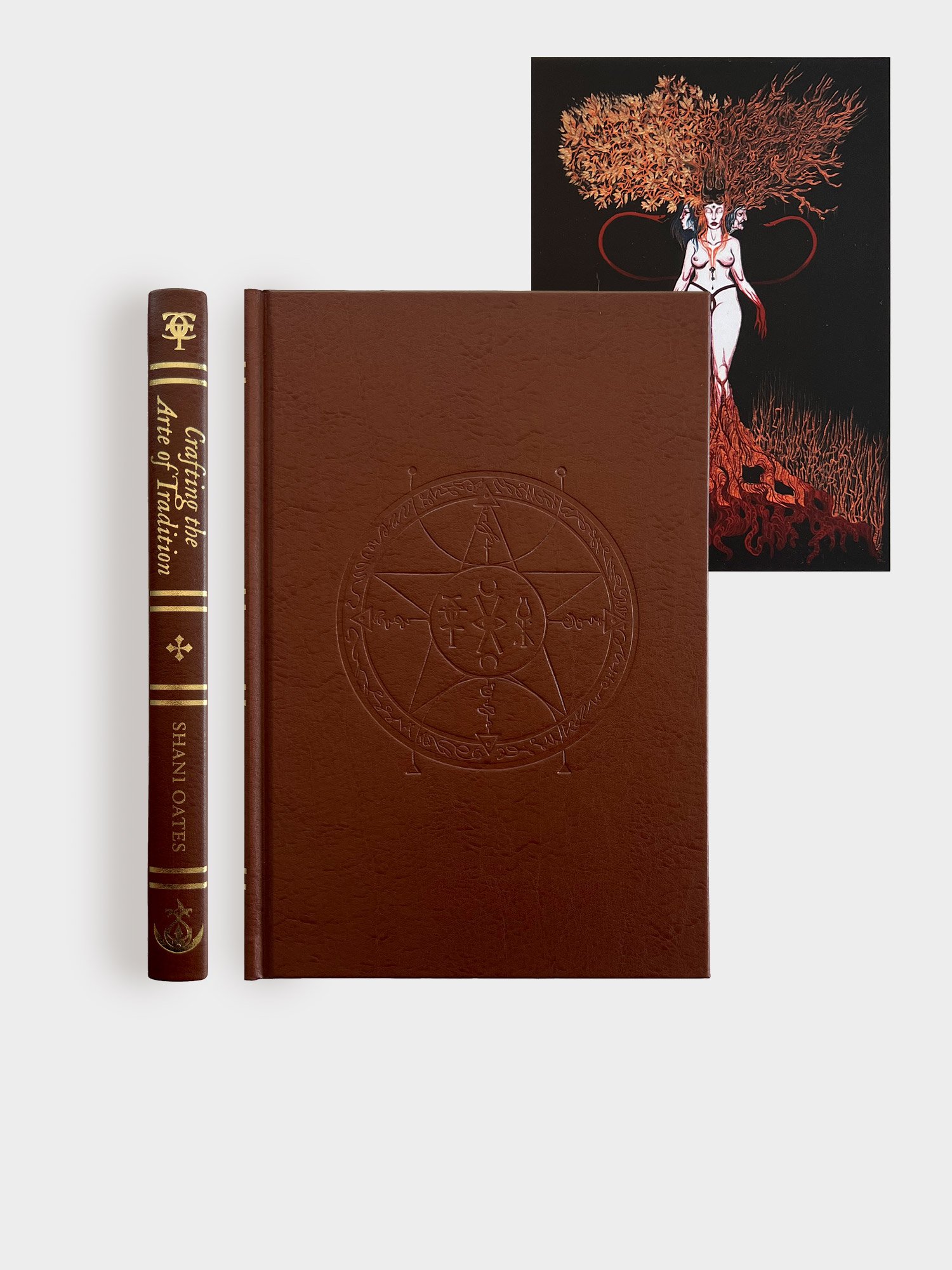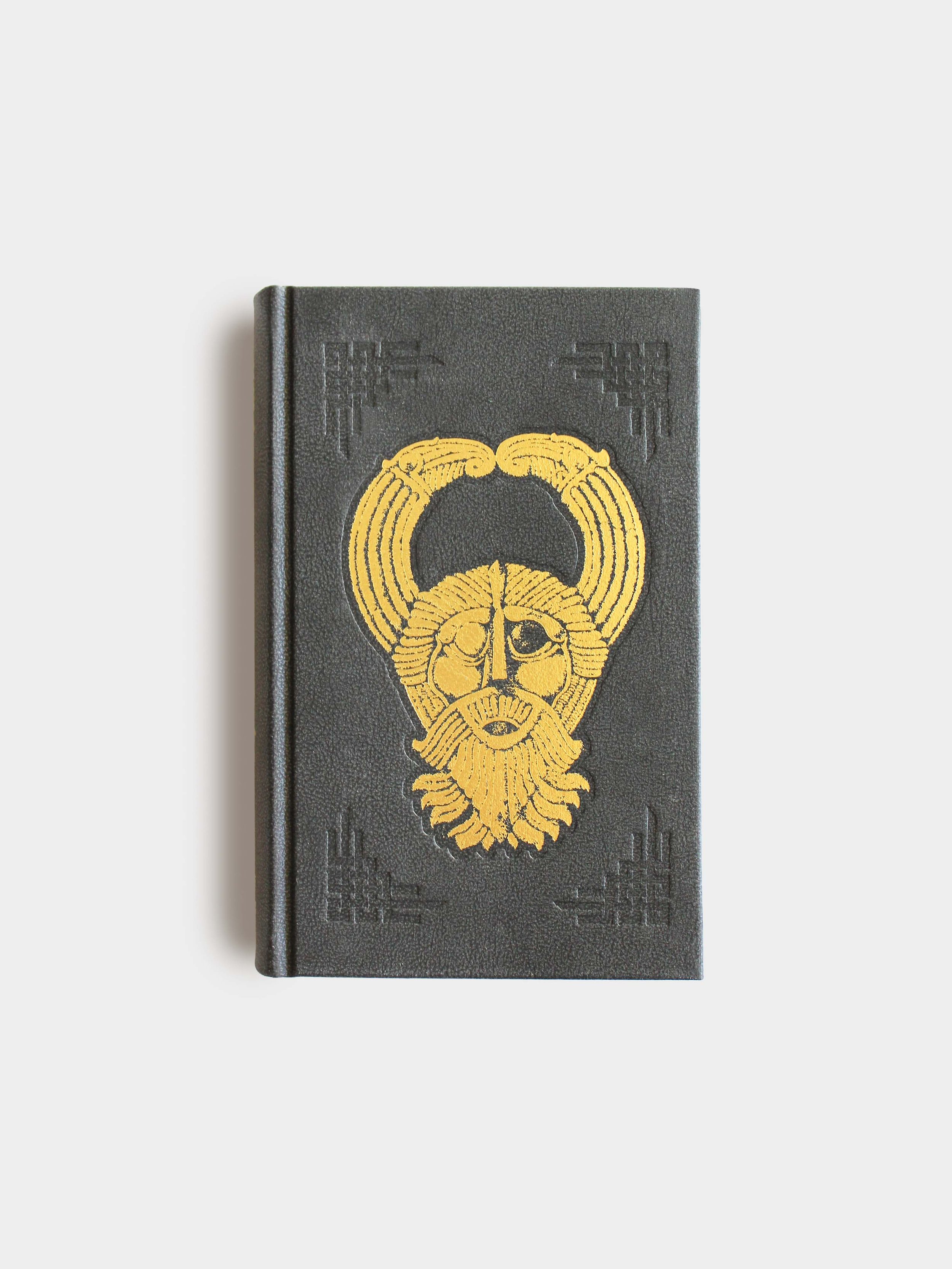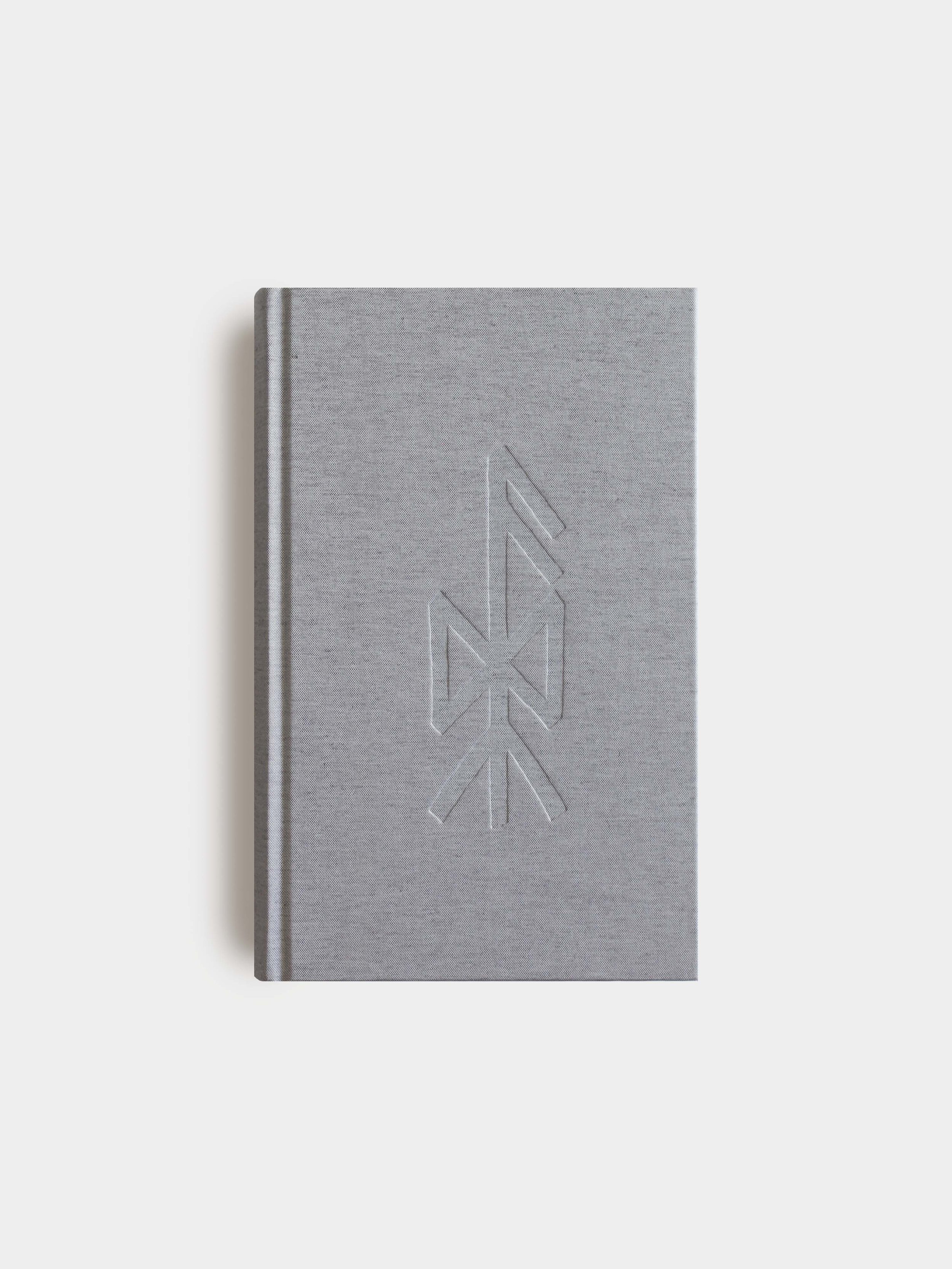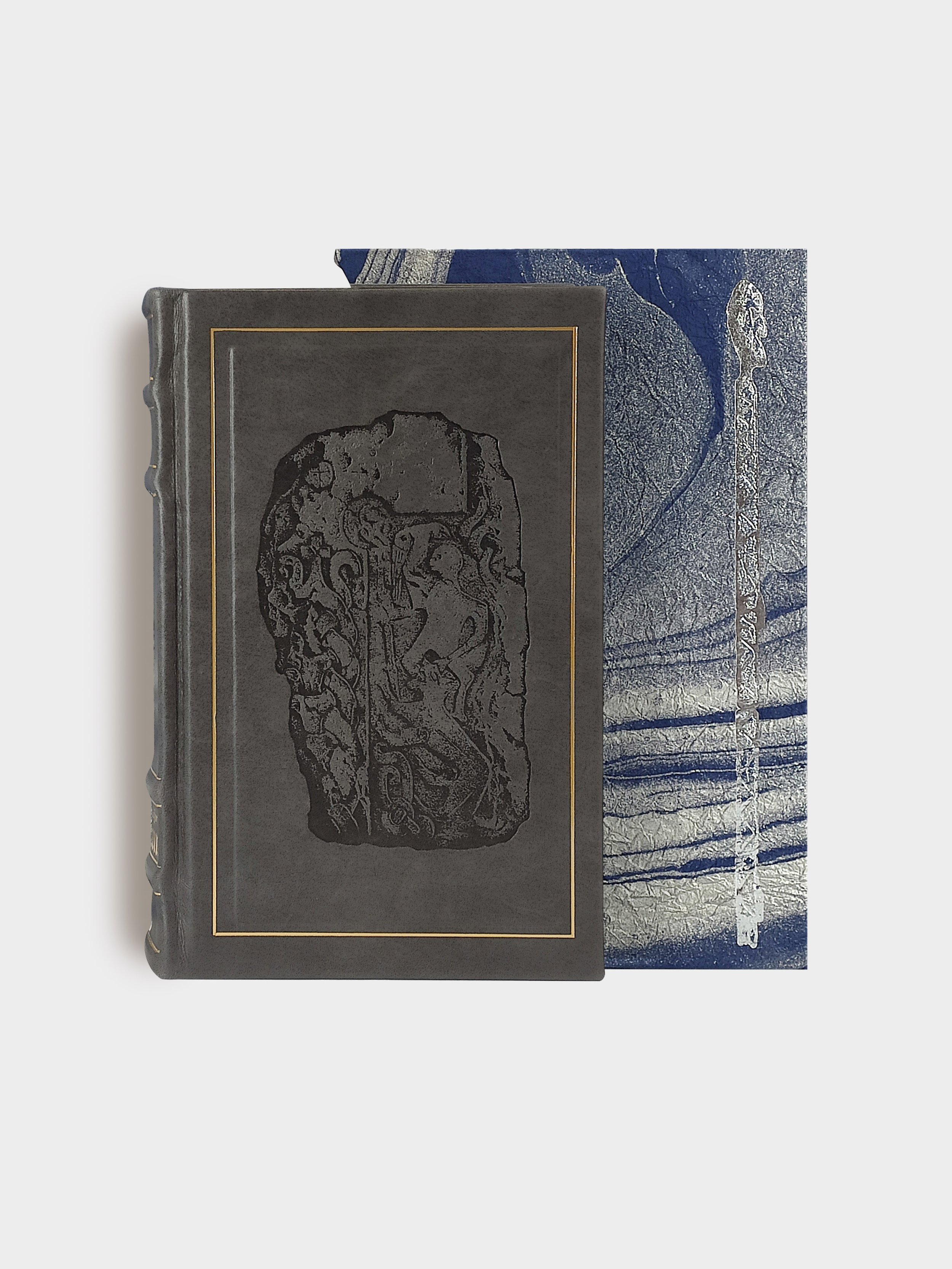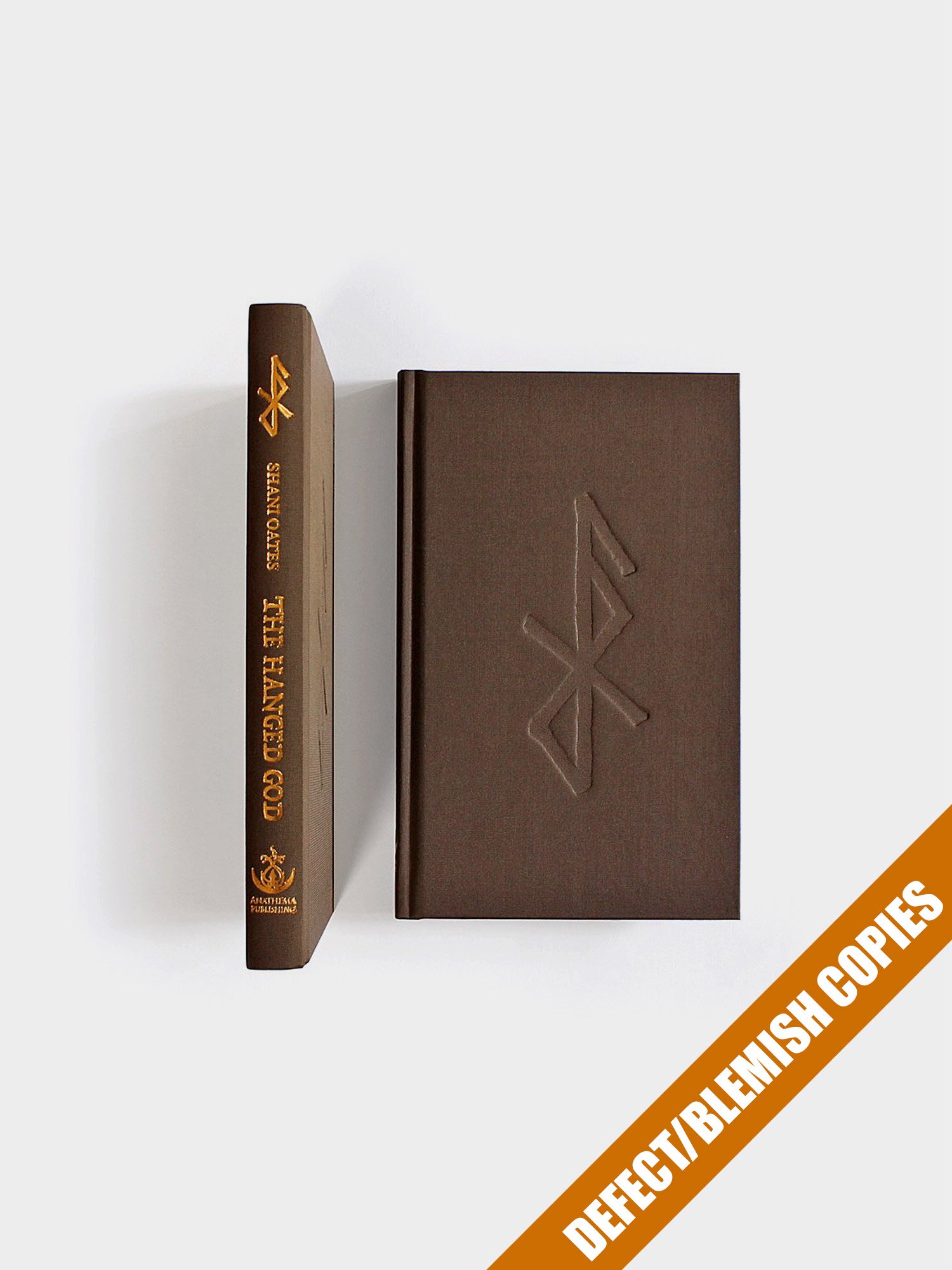-
5.25 x 8.5 inches. 208 pages. German Binding. Matte finish. Thoroughly illustrated, B&W Interior.
ISBN: 978-1-989339-32-9
-
5.25 x 8.5 inches. 208 pages. German Binding. Velvet Matte (Scuff Free) finish, and Bronze Foil Stamp on cover and backcover. Thoroughly illustrated, Fine typography, printed on Rolland Opaque Natural 160M quality paper.
-
5.25 x 8.5 inches. 192 pages. Hardbound 100pts, bound in Dark Brown Setalux fine Italian bookcloth. Gold foil blocking on rounded spine and Blind Deboss Bind-Rune on the cover. 1 Full-Color Frontispiece. B&W interior, with "Oatmeal-coloured" with Ultra Reverse pattern embossing Endpapers. Black & Yellow Headbands. Fully Illustrated. Fine typography, printed on Husky Opaque Offset Smooth 160M archive-quality paper. Hand-numbered.
Limited to 640 copies | ISBN: 978-1-989339-20-6
-
Minor Defect/Blemish Copies: Some books may present various physical imperfections or irregularities, including scratches or blemishes on the cover and glue spots. Some/Few pages may be bent or slightly ripped, and tooling defects such as faulty foil stamping or debossing may have occured, and Some copies may be unnumbered.
5.25 x 8.5 inches. 192 pages. Hardbound 100pts, bound in Mottled Brown Silktouch Nuba faux leather. Gold foil blocking on rounded spine and Blind Deboss + Gold foil on the cover as well. 1 Full-Color Frontispiece. B&W interior, with "Oatmeal-coloured" with Ultra Reverse pattern embossing Endpapers. Black & Yellow Headbands. Fully Illustrated. Fine typography, printed on Husky Opaque Offset Smooth 160M archive-quality paper. Comes with a carton-plate insert glued on the interior, individually hand-numbered, and signed by the author Shani Oates.
Limited to 412 copies | ISBN: 978-1-989339-20-6
-
5.25 x 8.5 inches. 240 pages. Hardbound 90pts, Bound in 'Stagecoach Bark' Genuine Leather. Gold Foil blocking on cover and on rounded spine + Blind Embossing on the back-cover. Raised bands on spine. Bronze-colored Satin Ribbon, as well as, silver & black cotton head & tail bands.
Handmade Marbled Endpapers by renowned paper marbler Robert Wu. Fully Illustrated. Fine typography, printed on Husky Opaque Offset 160M archive-quality paper. Glued, hand-numbered bookplate, signed by the author inside.
Comes with a Slipcase wrapped in handmade Nepal paper (Gold color) made from the fibers of Lokta (a native Nepali plant, also called the Daphne Shrub or Lokta Bush). This paper is unique in its texture and is acid-free. Features a huge wrap-around flat-bed printed motif of Óðinn riding on his eight-legged horse Sleipnir (a custom rendition of the Tjängvide image stone depiction of Sleipnir).
Strictly Limited to 39 copies in TOTAL
[Includes both versions of the book; with the 18K Gold Painted Edges AND the 24K Gold Leaf Edges.]
Contents
Introduction
The Hávamál Cultus
Gold Mead: Elixir of Forbidden Enchantments
Of Mounds and the Dead that Walk
Yggdrassill: Dread Steed of the Damned
Riding the Gallows: Sorcerous Covenants
Appendices
Bibliography
Abstract
Studies of the Sagas invariably focus upon the events conveyed in Havamal as either a supernatural occurrence, a construct devoid of historical facts, or, as an historical piece separated from magical elements. Óðinn’s association with the gallows is well attested, equally so, his mastery of the runes. However, so much is taken for granted, and repeated as if written in stone. The Viking World and its peoples and their beliefs have been grossly underestimated and misrepresented. This is partially due to media hype and partially due to lazy scholarship. Largely, it is due to blinkered analysis that fails to apply lateral inclusions. Academia isolates subject matter, dissects it and presents dry reports on its findings. It does not consider context and ignores anomalies.
For example, it is commonly said that the Sagas offer only the briefest glimpse into their world, and that there are so many (impossible) gaps within them, a composite perspective eludes us. But this is not true. There is a wealth of knowledge and information ‘hidden in plain sight.’ Recognising this takes more than a trained eye, it requires a unique understanding that comes only from living those traditions and customs in a truly holistic way. In this way, insight and experience en-flesh and explain the literature and artefacts available to us.
One other major problem with mainstream works is a propensity to take everything ‘as read,’ Nothing is questioned or checked for accuracy or authenticity. Far too many mistakes are repeated verbatim. Popular publishing is concerned with glamour and image above content. It appeals to the lowest common denominator. Brief summaries or abbreviated works, simplified for mass consumption severely restrict content to the extent that superficiality is the mainstay, and this decreases exponentially any opportunity for detailed explanations. This facilitates plagiarism. Not only does this perpetuate the circulation of poor or incorrect information, it fails to provide reliable source material that is often crucial to unlocking clues scattered throughout the Sagas.
Beyond this general overview of the issues of academia and mainstream publishing, there are very specific matters regarding this particular monograph. Etymology is a vital aid to how we process information, not as a cold science of words, but as voices hidden in the text that offer full insight, often revealing an entirely new understanding of intent and purpose.
There is a real dearth of approachable works that ford the resources and research academia has in plenitude. I feel very strongly therefore, that this work is singularly unique in is approach and its conclusions. It is not an easy read; it is not meant for those unfamiliar with the subject matter. It is not written as an introduction to ‘---', nor is it a ‘how to---' . There is already a plethora of books in circulation that do this, and they all repeat the same material – only the authors change.
In contra-distinction to this, my work offers suggestions, insights, revelations, even challenges for those well-versed in these histories and traditions, who are already familiar with the sagas and skaldic traditions, and who like myself, crave works that advance our knowledge of them even further. This work offers them an opportunity to consider a pioneering, extensively researched concept piece that suggests a very credible and plausible explanation of events, not in isolation, but as contextual, linked aspects of one complex story spread across numerous historical works. As a multi-disciplinary approach is provides new ideas that can be discussed and explored by smaller interest groups who are poorly served by modern publishers.
Importantly, the work is fully referenced with detailed notes for other researchers to follow; each chapter builds cumulative argument, bringing natural conclusion to this involved research. Academic and non-academic terms and phrases are used to promote ease of reading whilst maintaining integrity of form. Appendices are reserved for further consideration that would otherwise labour the text.















